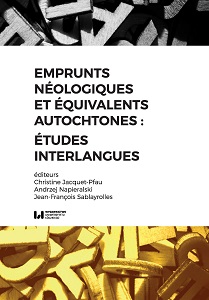Class action all’italiana : raisons d’un double échec
Class action all'italiana: the reasons for a double failure
Author(s): John Humbley
Subject(s): Theoretical Linguistics
Published by: Wydawnictwo Uniwersytetu Łódzkiego
Keywords: terminology; law; adaptation; loanword; class action; terminologie; droit; adaptation; emprunt; action de groupe
Summary/Abstract: This article aims to illustrate how the concept of class action has been adapted in Italy. It follows on a series of studies examining how this concept, typical of common law, is adapted, legally and linguistically, to civil law societies, in particular to Romance language countries such as France, Belgium, Quebec and Spain. These adaptations are typically accompanied by a strong terminological variation. To ascertain the situation in Italy, a review of class action and its equivalents was made in dictionaries and encyclopaedias, in the Italian national corpus and in the archives of the three main dailies, revealing the overwhelming predominance of the direct loan, even in a purely Italian context, to the detriment of other designations, including one which gives a good idea of the scope of the adaptation for Italy. But since this administrative innovation turns out to be of little effect in practice, the result can be said to be both a linguistic and a legal failure. // La presente etude, portant sur l’adaptation en italien du concept de class action (action de groupe), a ete realisee dans le cadre d’un projet visant a comparer les repercussions linguistiques et juridiques de l’introduction de ce dispositif dans differents pays de langue latine. Concu dans l’esprit de la common law ce concept doit faire l’objet d’adaptations importantes lorsqu’il est incorpore dans les pays de droit civil, francophones (France, Belgique, Quebec) et hispanophone (Espagne) notamment, adaptations refletees par une forte variation terminologique. Dans le cas de l’Italie, l’examen des ressources lexicographiques et encyclopediques disponibles, du corpus national et des archives de trois grands quotidiens de la presse nationale revele la nette preponderance de l’emprunt direct, meme dans un contexte purement italien, aux depens d’une formulation qui resume bien l’ambition du dispositif adopte. Ce dernier se revele inefficace dans la pratique, ce qui aboutit a un echec a la fois juridique et linguistique.
Book: Emprunts néologiques et équivalents autochtones: études interlangues
- Page Range: 35-47
- Page Count: 13
- Publication Year: 2018
- Language: French
- Content File-PDF

